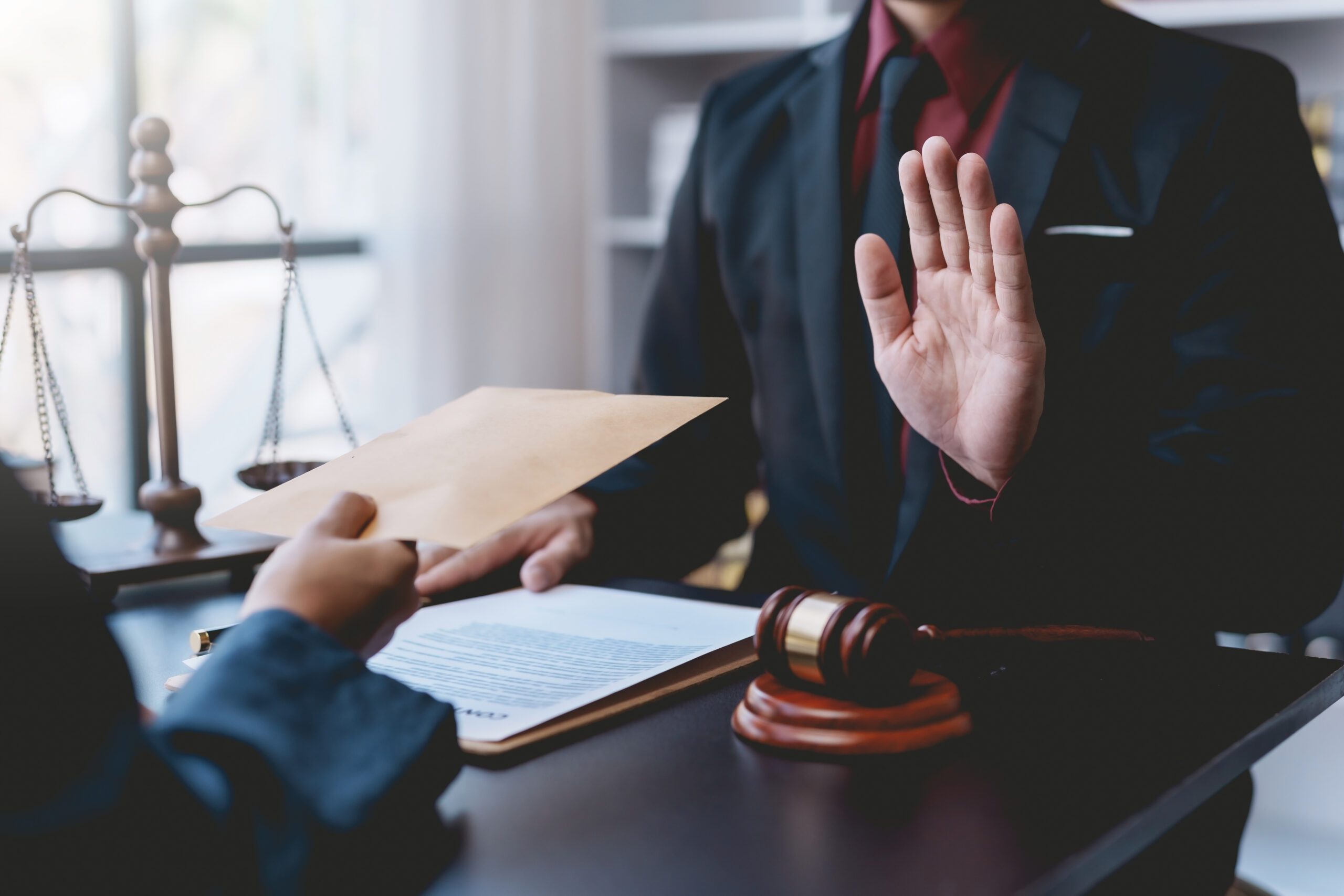Lawyers dropping cases is a relatively common occurrence in the legal world, but why do lawyers drop cases? There are various reasons why lawyers withdraw from cases, and clients need to understand why this happens and what it means for them.
Reasons Lawyers Drop Cases
When a lawyer decides to withdraw from representing a client, it can be a difficult and stressful situation for both parties. There are several reasons why a lawyer may choose to drop a case. Here are some of the most common reasons:
Conflict of Interest
A conflict of interest occurs when a lawyer's personal interests or relationships could interfere with their ability to represent a client effectively. For example, if a lawyer has a close personal relationship with someone involved in the case, they may be unable to remain impartial. In such situations, the lawyer may withdraw from the case to avoid potential ethical violations.
Unethical Course of Action
A strict code of ethics binds lawyers, who must always act in their client's best interests. If a client demands that their lawyer engage in an unethical course of action, such as lying or withholding evidence, the lawyer may be forced to withdraw from the case to avoid violating their ethical obligations.
Unrealistic Results
Sometimes, clients have unrealistic expectations about the outcome of their case. Suppose a client insists on pursuing a legal strategy that the lawyer believes is unlikely to succeed. In that case, the lawyer may choose to withdraw from the case rather than continue to represent the client in a losing battle.
Non-Compliance
Clients are expected to cooperate with their lawyers and follow their advice. If a client refuses to provide necessary information or fails to follow their lawyer's instructions, the lawyer may be unable to represent them effectively. In such cases, the lawyer may choose to withdraw from the case.
Disputes Over Legal Fees
Legal fees can be a source of tension between lawyers and their clients. If a client fails to pay their legal fees as agreed, the lawyer may be forced to withdraw from the case. Alternatively, if a client disputes the amount of legal fees charged, the lawyer may choose to withdraw from the case rather than continue to work with a client who is unhappy with their fees.
Effects on the Client
When a lawyer drops a case, it can significantly impact the client. Some of the effects that a client may experience are stress, the need for a new lawyer, and legal strategy disruption.

Stress
One of the primary effects on the client when a lawyer drops a case is stress. Clients may have already been under a lot of stress due to the legal issue they are facing, and having their lawyer drop their case can add to that stress. This can be especially true if the client has been working with their lawyer for a long time and has developed a relationship of trust with them.
Need for a New Lawyer
When a lawyer drops a case, the client will need to find a new lawyer to represent them. This new search can be a daunting task, especially if the client is not familiar with the legal system or does not know how to find a new lawyer. Additionally, the client may have to start the legal process all over again with a new lawyer, which can be time-consuming and expensive.
Legal Strategy Disruption
When a lawyer drops a case, it can also disrupt the legal strategy that has been developed for the case. The new lawyer may have a different approach to the case, which can lead to delays and additional expenses. Additionally, the new lawyer may need to spend time getting up to speed on the case, which can further delay the legal process.
The Legal Process When a Lawyer Withdraws
When a lawyer decides to withdraw from a case, it is crucial to understand the legal process that follows. This section will discuss the two main aspects of the legal process when a lawyer withdraws: the motion to withdraw and the termination of the attorney-client relationship.
Motion to Withdraw
A motion to withdraw is a formal request made by a lawyer to the court to be allowed to withdraw from a case. This motion must be filed with the court and served on all parties involved in the case. The court will then choose whether to grant the motion and allow the lawyer to withdraw.
If the court grants the motion to withdraw, the attorney is no longer responsible for representing the client in the case. The client will need to find a new lawyer to represent them.
Attorney-Client Relationship Termination
When a lawyer withdraws from a case, the attorney-client relationship is terminated. This means that the lawyer is no longer responsible for representing the client, and the client is no longer entitled to legal advice or representation from the lawyer.
It is important to note that even though the attorney-client relationship is terminated, the client may still be responsible for paying the lawyer's fees for work done up until the time of withdrawal. The lawyer may also be required to turn over any documents or information related to the case to the client or the new lawyer.
In some cases, the termination of the attorney-client relationship may be mutual. This means that both the lawyer and the client agree to end the relationship and the lawyer's representation in the case. Some reasons in which this can happen are a breakdown in communication or a change in the client's needs.
Financial Implications
When a lawyer takes on a case, they must weigh the financial risks and rewards. The costs of a case can be significant, and lawyers may decline it if they believe the financial risks outweigh the potential rewards. Here are some financial implications that can lead to lawyers dropping a case.
Limited Resources of the Defendant
One reason lawyers may drop a case is due to the restricted resources of the defendant. If the defendant is unable to pay damages, it may not be worth pursuing the case. In personal injury cases, for example, the defendant may not have adequate insurance coverage or assets to cover the damages. In such cases, the lawyer may advise the plaintiff to settle for a smaller amount or drop the case altogether.
Obligation to Pay Legal Fees
Another financial implication that can lead to lawyers dropping a case is the obligation to pay legal fees. Lawyers charge for their time, and the costs associated with a case can quickly add up. If the client is unable or unwilling to pay the legal fees, the lawyer may withdraw from the case. Sometimes, the lawyer may work on a contingency basis, which means they only get paid if they win the case. However, if the lawyer believes the case is unlikely to succeed, they may decline to take it on.

Communication Challenges
Communication challenges can be a significant factor in why lawyers drop cases. These challenges can arise from various sources, including language differences, health conditions, or simple misunderstandings. This section will explore two common communication challenges that can lead to a breakdown in the attorney-client relationship.
Lack of Communication
Lack of communication can be a significant issue for most relationships, and the attorney-client relationship is no exception. The American Bar Association (ABA) Model Rule 1.4 states lawyers must keep their clients “reasonably informed” about the status of their case and to “promptly” respond to their clients' reasonable requests for information. However, lawyers may not always meet these requirements, leading to a breakdown in communication.
Clients may become frustrated when their lawyers fail to keep them informed about the status of their case or fail to respond to their inquiries. This frustration can lead to a breakdown in the lawyer-client relationship, which may ultimately result in the lawyer dropping the case.
Lawyer Stops Communicating
In some cases, lawyers may stop communicating with their clients altogether. This can occur for various reasons, including conflicts of interest, ethical concerns, or personal issues. Whatever the reason, when a lawyer stops communicating with their client, it can be incredibly frustrating and stressful for the client.
If a lawyer stops communicating with their client, the client may feel abandoned, confused, and uncertain about the status of their case. This non-communication can to lead to the breakdown of the attorney-client relationship, which may ultimately result in the lawyer dropping the case.
Choosing the Right Lawyer
When a legal case arises, finding the right lawyer can be a daunting task. Choosing a lawyer with the experience and expertise to handle your case effectively is integral. This section will cover a few key factors to consider when choosing the right lawyer.
Free Consultation
While potential clients are searching for the perfect lawyer, they can request a free consultation since most lawyers offer this service. During this meeting, a lawyer will discuss the case details and assess its strengths and weaknesses. This consultation is an excellent opportunity to get a feel for the lawyer's expertise and communication style by asking questions. It's important to take advantage of this opportunity to find a lawyer who is a good fit for your case.
Legal Advice
When choosing a lawyer, finding someone who can provide sound legal advice is important. This means finding a lawyer knowledgeable about the specific area of law your case falls under. For example, if you're dealing with a personal injury case, you'll want to find a lawyer specializing in personal injury law. A lawyer knowledgeable about the specific area of law will be better equipped to provide you with the guidance and advice you need to navigate your case successfully.
Personal Injury Lawyers
Finding a lawyer with primary experience in personal injury law is essential when dealing with a personal injury case. Personal injury cases can be complicated, and it's crucial to find a lawyer with experience handling them. A personal injury lawyer will be able to provide you with the guidance and advice you need to navigate your case successfully.
Why Do Lawyers Drop Cases Summary
Lawyers may drop cases for various reasons, including ethical considerations, conflicts of interest, and a breakdown in communication between lawyer and client. In some cases, the lawyer may withdraw from the case voluntarily; in others, the court may order the lawyer to withdraw.
Alternatively, the client's behavior may also be a reason for the lawyer to withdraw from the case. For example, suppose the client refuses to follow the lawyer's advice, demands unrealistic results, or insists on pursuing an unethical course of action. In that case, the lawyer may be required to withdraw to protect his or her own reputation and integrity.
The effects of a lawyer dropping a case can be significant for the client, especially if the case is at a critical stage in the legal process. It can lead to delays, increased legal fees, and added stress for the client. Choosing the right lawyer and maintaining open communication can help prevent a lawyer from withdrawing from a case.
Overall, lawyers have a professional and ethical obligation to represent their clients to the best of their abilities. And if they are unable to provide effective representation, they might need to withdraw from the case to protect all parties involved.




